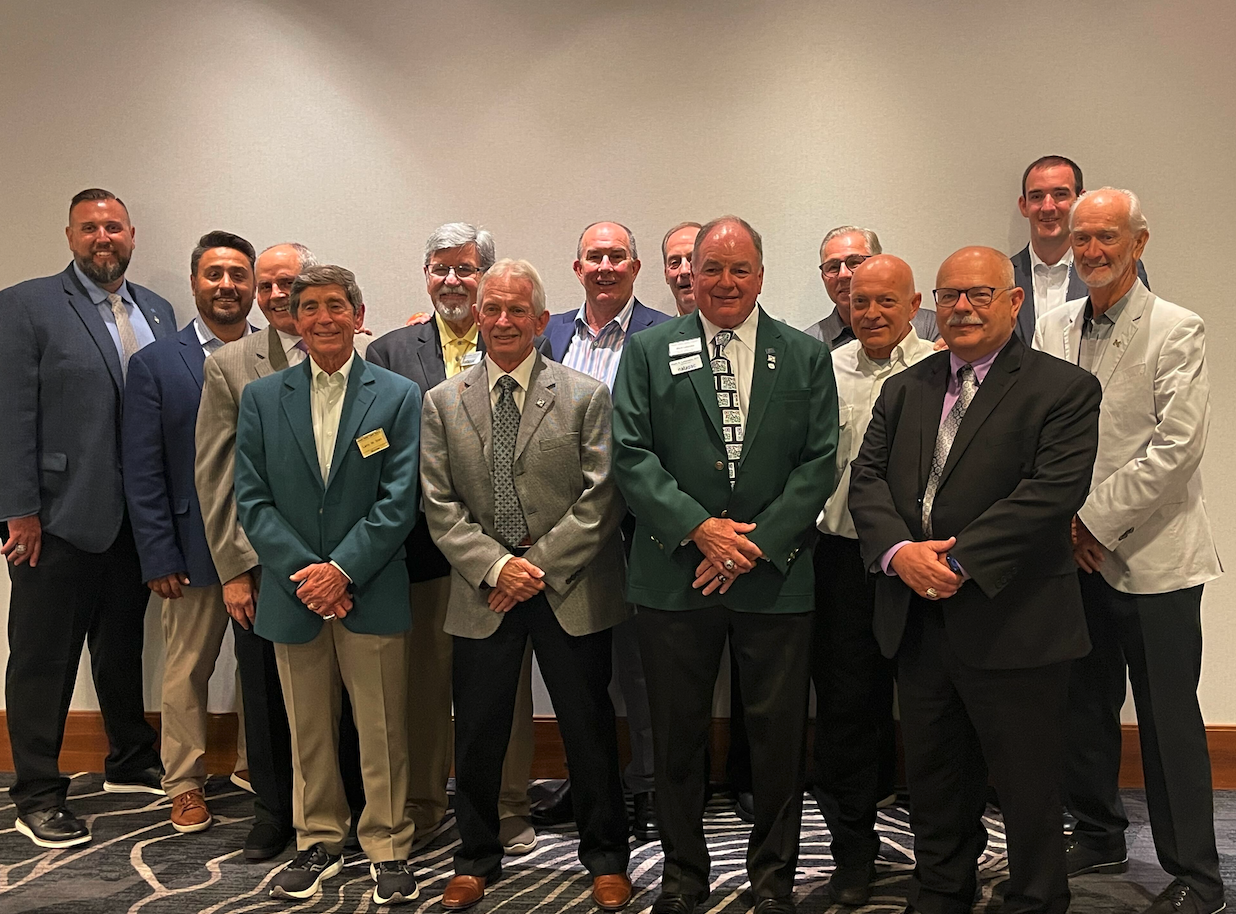PBATS Members Head to Indianapolis for the NATA Conference
Written By: Corey Tremble, Detroit Tigers
The largest annual gathering of certified athletic trainers ascended in Indianapolis for the 74th National Athletic Trainers’ Association Clinical Symposia and AT Expo. Leaders, clinicians, educators, entrepreneurs, and students attended the four-day convention to help advance and advocate for the profession of athletic training.
Held each summer, the National Convention has been difficult for those in Professional Baseball to attend and contribute, as it is held during the heart of the season. Through the vision of the PBATS Board and past-President, Richie Bancells, the PBATS Alumni Group has successfully enhanced the footprint of the Society on the National Stage. The Professional Baseball Athletic Trainers Society was a valued addition to the Convention through education, advocacy, and innovation.
Advocating for the Profession
When looking to advance the profession at the highest level, it requires the help and time of the membership. The NATAPAC or the National Athletic Trainers’ Association Political Action Committee is known as the Voice of Athletic Training. The NATAPAC works on behalf of all athletic trainers to enhance health care for athletic trainers and those who receive care. The current Chair of the NATAPAC is NATA Hall of Famer and PBATS Alumni, Mark Letendre.
His presence was felt throughout the Convention at the NATAPAC booth where he accepted donations from the membership and during the NATAPAC Breakfast which was held to thank those donors in attendance. The Keynote Address at the Breakfast was done by Murphy Grant of the Cleveland Cavaliers and he expanded upon advocacy and leadership within the profession. The addition of the NATAPAC Challenge Coin was a huge success among the membership and will be a strong reminder of the impact PBATS has had on advocacy for all.
PBATS Alumni and Green Jackets
While roaming the Exhibit Hall or taking in an educational session, you will notice a select group of athletic trainers donning a Green Jacket. This signifies that they have received the highest honor in the profession: election into the National Athletic Trainers’ Association Hall of Fame. PBATS is no stranger to the NATA Hall of Fame and three of their Green Jackets were on display in Indianapolis.
PBATS Alumni Larry Starr, Kent Biggerstaff, and Mark Letendre attended the Convention and helped advocate and educate the membership on the professional baseball athletic trainer. Along with the Green Jackets, the following PBATS Alumni and Associate Members made the trip to ensure PBATS was recognized during the largest educational summit for athletic trainers.
PBATS Alumni in Attendance
- Larry Starr – NATA Hall of Fame
- Kent Biggerstaff – NATA Hall of Fame
- Mark Letendre – NATA Hall of Fame
- Herm Schneider
- Rick Griffin
- Tony Garofalo
- Paul Spicuzza
- Larry Mayol
- Russ Miller
- Bill Henry
- Michael Salazar
- Gene Lane
- Larry Duensing
- Sue Falsone
- Paul McGannon
PBATS Associate Members in Attendance
- Dru Scott
- Jake Legan
- Johan Mussa
- Corey Tremble
PBATS also teamed up with the NATA International Committee to host a reception for all members and friends of the program. Rick Griffin currently sits on the International Committee as the PBATS Liaison and has had a long history of service to the profession’s growth on a global stage. Not only does PBATS look to give back to those in the NATA, but through Rick’s efforts, the Society has been at the forefront of spreading the profession at international events for decades. Paul Spicuzza was instrumental in arranging and planning the festivities and clinicians from all over the globe and across multiple generations of baseball celebrated this long-standing relationship.
In the Spotlight
PBATS was founded as an educational resource for Major League and Minor League Athletic Trainers. Since 1983, it has been the focus to continue paying it forward and this mindset was on display throughout the week with members of Professional Baseball lecturing and presenting original research.
Cleveland Guardians athletic trainer, Jake Legan, recently completed his Doctor of Athletic Training degree at Temple University and has been treating professional baseball players for a decade. He exhibited his work on the Use of Diagnostic Ultrasound in Evaluating Rotator Cuff Tears: A Critically Appraised Topic during the Screening Tools and Assessment Techniques Free Communication Poster Presentations segment of the Conference. His knowledge of MSK US and its applications for the elite thrower was a highlight of the session.
Johan Mussa, an athletic trainer in the Boston Red Sox system, also presented a scholarship as part of his degree from Springfield College. His original work entitled Cultural Competence of Athletic Trainers in the Delivery of Health Care touched on an important aspect of the athletic trainer’s soft skills and gave actionable ways of improving as a clinician.
Athletic Training Coordinator for the Pittsburgh Pirates, Dru Scott, presented to an audience of nearly 200 clinicians and healthcare providers on Mobility, Work Capacity, and Recovery for MLB Pitchers. Dru explained how Professional Baseball has grown in the assessment and intervention space to help prepare our athletes for the difficult demands of the season. His lecture was presented by PBATS and Dru gave an incredible in-depth experience for all in attendance. He made himself available after the lecture as the questions from the audience continued into the next presentation slot.
Lastly, Corey Tremble of the Detroit Tigers, who was recently named the Chair of the NATA Cannabis-Related Resources for the Athletic Trainer Task Force, moderated the session entitled Unraveling All of the Cannabinoids: An Interactive Lecture Beyond CBD. With fellow experts Dr. Jeff Konin of Florida International University and Tiffany Morton of the Kansas City Chiefs, this lecture provided insight into how these three leading voices in this space educate clinicians, athletes, and the various stakeholders they interact with. This was a great example of PBATS reaching all athletic trainers by collaborating with fellow professional sports ATs and clinical educators.
For more information on the NATA, please visit: https://www.nata.org/

